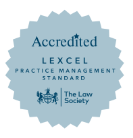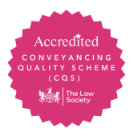The Rundlewalker Guide to Property Legal Jargon.
What does it all mean? The Rundlewalker Guide to Property Legal Jargon.
At Rundlewalker, we appreciate that buying or selling property can be daunting, especially if some of the terms are unusual. We hope this guide to the words and terms used during a 'conveyancing' transaction will explain some of them. But please let us know if you have any queries in relation to any terms of your transaction.
Architect
An Architect is a person trained and licensed to plan, design, and oversee the construction of buildings. To practice architecture means to provide services in connection with the design and construction of buildings and the space within the site surrounding the buildings, that have as their principal purpose human occupancy or use.
Building Regulations Approval
Any work of a structural nature must have approval from the Local Authority. i.e. erection of an extension or a loft conversion. If Building Regulations Approval has not been given then your Conveyancer will recommend that a Lack of Building Regulation Approval Indemnity Insurance Policy is obtained to protect you when you come to sell the property.
Chain
The majority of people moving house will be selling one property and buying another and will want the two transactions to coincide. There may be several people in this situation and hence a chain is formed. A long chain can take longer to reach an Exchange of Contracts as everyone has to wait for the last person to be ready.
Building Regulation Completion Certificate
This document confirms that building work to a property has been carried out in accordance with Building Regulations. It is issued by the Local Authority.
Completion Date
This is the date that the balance of the purchase price is paid to the seller and the Legal Title to the property passes from the seller to the buyer. It is also the day on which you move home. Don't make any firm commitments, such as giving notice or booking removals, before Exchange of Contracts takes place and the Completion Date is set. The Completion Date is not set without discussing and agreeing this with you first. If you are part of a chain of sales and purchases, the Completion Date has to be agreed between all parties involved in the chain, so a date has to be found that is convenient for everyone.
Completion Statement
A Completion Statement is prepared by your Conveyancer after Exchange of Contracts and before the Completion Date. The Completion Statement details all the sums of money that have been handled during the transaction, including all costs and disbursements. It will also show how much more we need from you in order to Complete if you're buying, or how much we will be sending to you after Completion if you are selling. If your Conveyancer requires money from you to Complete, you will be required to send the funds by telegraphic transfer to reach the Conveyancer’s bank by no later than the day before Completion.
Covenants
Deeds may contain covenants which are a promise to do or not to do certain things on the land. Your Conveyancer will make you aware of any such covenants that affect the property you are buying.
Deeds
Deeds are the documents which prove who legally owns the property. If you have a Mortgage, the Deeds are normally held by the Lender (sometimes known as “the Mortgagee”); if you own your house outright, you probably have them yourselves or they are kept at your bank. In addition to the actual proof of ownership the Deeds also contain a lot of information about the property and any restrictions on the way you can use it (these are called “restrictive covenants”). Sometimes the bundle of Deeds also has copies of Planning Permissions and Building Regulation approvals relating to the house. Needless to say, these are very important documents.
Deposit
On Exchange of Contracts, part of the purchase price is paid by the buyer to the seller, which is held by the seller’s Conveyancer until Completion. The deposit amount is usually 10% of the purchase price although it may be the difference between the purchase price and the amount of your mortgage advance. If you are simply buying a property without a related sale, we will ask you for this money before Exchange of Contracts. If you are both buying and selling, we'll probably be able to use the deposit that we receive from your buyers’ Conveyancer as the deposit on your own purchase.
As the buyer, if you then fail to Complete (and it is not the sellers’ fault) you will forfeit the deposit. If the deposit amount is less than a full 10% you will have to provide the difference. You may also have to pay compensation to the sellers if they lose out through your failure to complete.
Disbursements
Fees that your Conveyancer has to pay to others i.e. Local Authorities, Land Registry etc. during the course of the transaction. These will be in respect of Local Authority Searches, Land Registry Fees, Environmental Searches and any other relevant Searches.
Draft Contract
This is a document drawn up by the seller's Conveyancer and is based on the information contained in the Deeds. It sets out exactly what is being sold and for how much. It also lists any special terms that have been negotiated and it deals with what will happen if something goes wrong. The Contract is drawn up in two identical parts, each of which is signed by both parties. When both sides are ready to commit themselves, the signed Contracts are Exchanged.
Easement
This is a right over another person’s property or a right that they have over your property. This can be a right of way, a right of support, right of light etc. Your Conveyancer will make you aware of any such easements that affect the property you are buying.
Environmental Search
In addition to the Local Authority Search we also carry out an Environmental Search. This contains information about contaminating and polluting processes, past and present; landfill and waste treatment sites in the immediate area; nearby sources of toxic or explosive substances; areas of ground that may have been filled in the past; the probability of radon gas seepage; and the risk of subsidence and flooding.
Exchange of Contracts
When Contracts are Exchanged, the sale and purchase become legally binding. This means from that moment on the seller must sell and the buyer must buy at the price set out in the Contract, and this must happen on the Completion Date fixed in the Contract. Until Contracts are Exchanged there is no binding agreement and each party can walk away from the deal without any legal consequences. Just prior to an Exchange of Contracts taking place, the buyer and the seller will need to agree a Completion Date as this is inserted into the Contracts at the time of Exchange.
As a buyer, once you have Exchanged Contracts, you should insure the purchase property immediately.
If you are both buying and selling we shall Exchange Contracts using a formula agreed between lawyers that means that at no time will you be committed to one side of the deal without a similar binding commitment on the other side.
On Exchange of Contracts a Deposit is paid with the balance of the purchase price being paid on Completion.
Fixtures, Fittings & Contents Form
A pre-printed form for you to fill in if you are selling a house. It details the items being left at the property or are being taken by you. If you are buying a house you will be provided with a copy of this form that has been completed by the seller.
Freehold Title
Most houses have Freehold Title giving the owner outright ownership of the land and the building, subject to any covenants affecting the property.
H M Land Registry
The Land Registry keeps a record of who owns what land and updates it whenever there is a transaction dealing with it. It is compulsory to notify the Land Registry of all dealings affecting land, which is usually dealt with by your Conveyancer.
Indemnity Insurance Policy
An Indemnity Insurance Policy will protect you against unforeseen property risks. A small insurance premium will cover homebuyers against legal action arising from breaches of Planning Permission or problems with the property title etc.
Land Registry Fees
A fee is payable to the Land Registry when your Conveyancer applies to them following completion to Register your Title to your new property. The amount of this will be included in your quotation at the beginning of the transaction and is determined by the purchase price of your property.
Leasehold Title
Flats and maisonettes are the subject of a Lease which sets out the responsibilities for maintenance etc. affecting the property. All leasehold properties have a set term which determines when the lease will end at which time it reverts back to the Freeholder or a lease extension may be negotiated with the Freeholder.
Local Authority Search
A list of enquiries to the Local Authority of the area in which the property you are buying falls. It will detail the Planning History of the property that you are buying and it should also confirm that there are no existing breaches of Planning Control that could lead to problems if you buy the property (for example, an extension without Planning Permission or Building Regulation approval). It also shows whether the roads giving access to the property are adopted and maintained by the Local Authority. The Search is against the property only and does not cover the surrounding area. If there is a possibility of developments nearby which may affect the property, we are able to carry out an additional search.
Mortgage Advance
The amount of money that your lender is providing to help purchase your property. Your Conveyancer will arrange for these funds to be paid to them in time for the Completion Date.
Mortgage Deed
This document is supplied by your lender and records your loan with them and “charges” your new property as security. This document must be signed by all parties to the mortgage before Completion.
Mortgage Offer
If you need financial assistance to buy your property you will have probably applied to a Bank or Building Society for a loan. This loan is “secured” on the property so that you cannot sell it without first repaying the loan. Your Conveyancer will not Exchange Contracts until you have received a written Mortgage Offer confirming that the lender is prepared to lend part of the purchase price.
Office Copy Entries
These are up-to-date copies of the Title of the property detailing the owner and show any mortgages, covenants etc. These are provided to the buyer’s Conveyancer at the beginning of the transaction.
Official Copy of the Register
This is the document issued by the Land Registry to show that (a) you own your house and (b) if you have a mortgage, that your lender has a Charge on it. This information is also stored electronically at the Land Registry.
Permitted Development
You can make certain types of minor changes to your house without needing to apply for Planning Permission. These are called "Permitted Development Rights" and are described in the Government guide found on the website www.planningportal.gov.uk. They derive from a General Planning Permission granted not by the Local Authority but by Parliament. Bear in mind that the Permitted Development Rights which apply to many common projects for houses do not apply to flats, maisonettes or other buildings.
Planning Permission
This must be granted for building works carried out to a property i.e. conversion of a building to flats, erection of an extension of a size larger than that allowed as Permitted Development etc.
Pre-Completion Searches
Before Completion your Conveyancer will check various public registers to make sure that there have been no dealings with the property you are buying since Contracts were Exchanged that may adversely affect the transaction. If you are getting a mortgage, your lender will require your Conveyancer to carry out a Search to make sure that you are not bankrupt.
Redemption
If you have a mortgage on the property you are selling, your Conveyancer will be required to pay off the amount that is outstanding on this mortgage from the proceeds of sale.
Report on Title
This is the confirmation that your Conveyancer will give to your lender that the property you are buying is good security (in legal terms) for their loan. This is also the document that requests the drawdown of your loan in time for the Completion Date.
Retention
A retention is when a sum of money is held back by the buyers Conveyancer usually in respect of something that the seller has to provide prior to Completion or perhaps some work to the property that was agreed on Exchange, has to be carried out prior to Completion. The retention monies are released once the conditions to which it relates have been satisfied. Sometimes a lender will insist on making a retention from the mortgage advance to cover the cost of certain works that they consider must be carried out to the property before they will release the whole of the mortgage advance.
Sellers Property Information Form
This is a pre-printed form that we shall send to you at the beginning of the transaction if you are selling a house. It is designed to provide a lot of information about the property that is not necessarily clear from the Deeds. If you are buying a house you will be provided with a copy of this form that has been completed by the seller.
Stamp Duty Land Tax
The Government charges a Tax on all property sales of more than £125,000. Stamp Duty Land Tax (SDLT) is charged on land and property transactions in the UK. The Tax is charged at different rates and has different thresholds for different types of property and different values of transaction.
The Tax rate and payment threshold can vary according to whether the property is in residential or non-residential use, and whether it is a freehold or leasehold. SDLT relief is available for certain kinds of property or transaction.
Use the HM Revenue and Customs (HMRC) SDLT calculator to work out how much you’ll pay.
Survey
This is a formal summary of the physical state of a property which is prepared by a qualified Surveyor. Different levels of survey are available, depending on the age and state of the property, the most comprehensive being a Full Structural Survey, but this can prove expensive. At the very least you should commission a “House Buyers’ Report”. If you are having a mortgage, your lender will probably carry out their own survey and valuation. It is always encouraging if this does not show up any problems, but do remember that you cannot rely on it if a problem appears later - it was carried out for the lender's benefit and not for yours.
Transfer Deed
This is the Land Registry document that formally transfers ownership from the seller to the buyer. It always has to be signed by the seller and sometimes by the buyer. The Transfer Deed must be signed prior to Completion.
At Rundlewalker, our Residential Property Conveyancing Team is equipped to ensure the purchase, sale or transfer of your home runs as smoothly as we can make it. For immediate, confidential advice or for a conveyancing quote, please contact our Conveyancing Team.
The Team involved in providing your conveyancing services can be found here: Our Residential Conveyancing Team.









